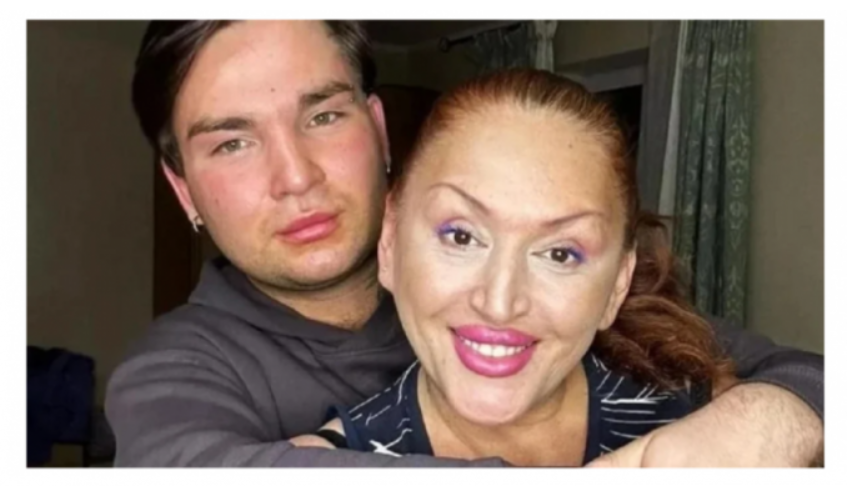In a shocking and controversial turn of events, a 53-year-old woman married her own 22-year-old son, sparking shock and outrage across the country. Their story quickly made the rounds in the media and social networks, sparking intense debates and passionate reactions from all sides.
It all started when Margaret, a 53-year-old woman, was reunited with her biological son, Andrew, after years of separation. Andrew had been adopted shortly after his birth, and it was only recently that they had reconnected. What started as an emotional reunion between mother and son quickly took an unexpected and disturbing turn.

Margaret and Andrew said they felt an intense, inexplicable connection from the moment they first met. This connection quickly blossomed into a romantic relationship. Ignoring social taboos and laws, they decided to get married, causing a public outcry. Their marriage was celebrated in secret, but the news quickly spread, triggering a media storm.
The incestuous relationship between Margaret and Andrew not only shocked the public, but also attracted the attention of the authorities. In many places, incestuous relationships are illegal and subject to criminal prosecution. Margaret and Andrew were arrested and charged with incest, a serious charge that could result in lengthy prison sentences.
Psychology experts were quick to warn of the psychological dangers of such a relationship. The biological connection between Margaret and Andrew complicates emotional and psychological dynamics, increasing the risk of mental disorders and emotional stress. Both individuals underwent psychological evaluations to determine the extent of the impact on their mental health.
Public reaction has been overwhelmingly negative, with calls for harsh sentences and discussions of the need for stricter laws to prevent such situations. Social media was flooded with outraged comments and debate over the ethical and moral aspects of the situation. However, there was also a minority who expressed sympathy, arguing that love, even in controversial forms, should not be criminalized.

Margaret and Andrew’s extended families were also deeply affected. Andrew’s adoptive parents, in particular, found themselves at the center of intense controversy, facing questions about their role and responsibility in Andrew’s upbringing. The relationship caused deep divisions within the families, with some members supporting the couple despite everything, while others strongly condemned them.
Margaret and Andrew’s future remains uncertain. Ongoing legal proceedings will determine their legal fate, while their relationship will continue to spark debates about the limits of love and social norms. Whatever the outcome, their story will remain a stark example of the potential consequences of ignoring social taboos and laws.
The story of Margaret and Andrew is a poignant illustration of the complications and consequences of incestuous relationships. It raises crucial questions about social norms, laws and the limits of love. In a world where notions of family and relationships continue to evolve, their case will be remembered as an example of the challenges and dangers of crossing certain lines.
